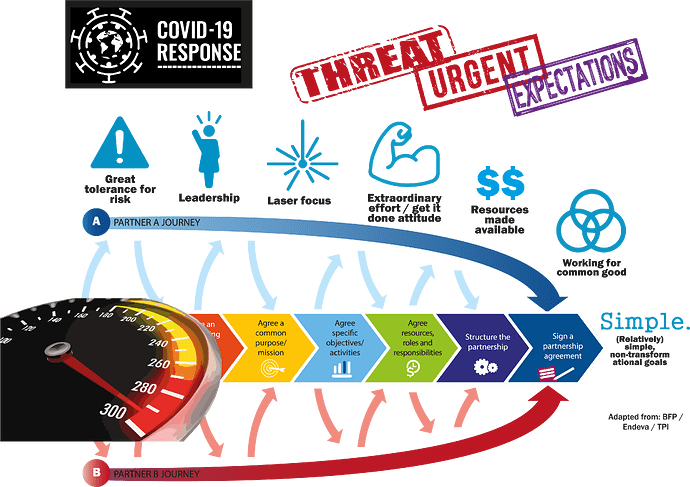Hi Katie,
To answer Q2 -
A2: CARE:
Certainly, from the experience over the last year between CARE International and M&S has been the understanding, intelligence (as a business partner), knowledge and flexibility across the partnership to be able to pivot or add the additional response requirements to the existing programme framework. Having a business partner willing and able to grasp the situation quickly and what is required, able to translate this into action through their own capacities in country and engage with their suppliers to support this has been key to its success.
Being able to demonstrate, as we have been able to do so from our previous programme with GSK and M&S and with their suppliers, that having your workforce able to access medical care (especially women’s health if your workforce is 80%+ women workers), hygiene and nutritional support and services, protective measures (such as GBV prevention) has shown suppliers productivity increased. One of the key challenges has been protecting these gains from sudden shocks. CARE has been able to do this by continuing to ensure that women workers both in the factories and in their communities can continue to access medical services and support, remain protected and able to understand, access and incorporate key protective measure from COVID in their work. A lot of this would not have been possible without the business partnership able to engage with suppliers to present this case.
The successes and linkages put in place between the programme in Bangladesh, including the factories and M&S, with both local government systems and support services, and with other businesses have been a real plus and has been a great opportunity to expand the impact of the programme. Having Procter & Gamble for example, willing and able to provide over 150,000 women sanitary products free to the response across both the 25 factories and their communities, supporting over 40,000 women has been a huge benefit and provides opportunities for similar support in the future. The provision of cervical screening, TB testing, child immunization support, social security support from the local authorities to the programme and factory workers, again free of charge, has contributed to greater gains than initially planned and has helped protect the core of the response.
The introduction of new technologies, such as the use of virtual medical platforms and apps for women workers and community members to access medical services and support through tablet stations in the factory and Community Wellbeing Centres takes time to embed and remains a challenge to be widely used as an alternative to face-to-face engagements. Having a business partnership however willing to look at opportunities to explore proof of concept innovative options has really helped from the outset with the vision to go to scale in the future.
And lastly, the business partnership now has a real opportunity to share the learning and positives across the RMG sector and through the BGMEA. Having both M&S willing to champion this with the support of the factory’s management, provides a real opportunity for wider gains if other suppliers see the positives from this business partnership and are willing also to replicate more widely.
